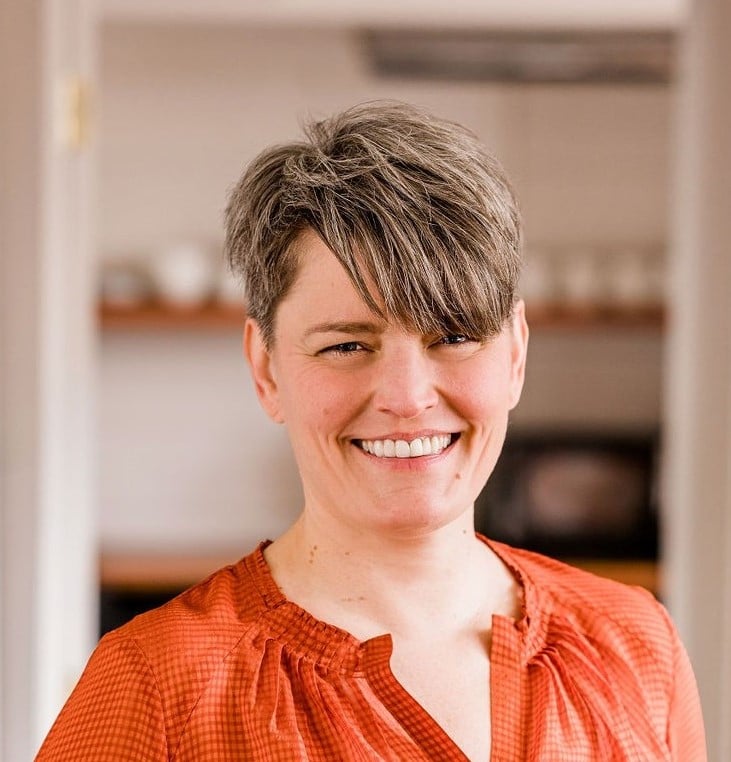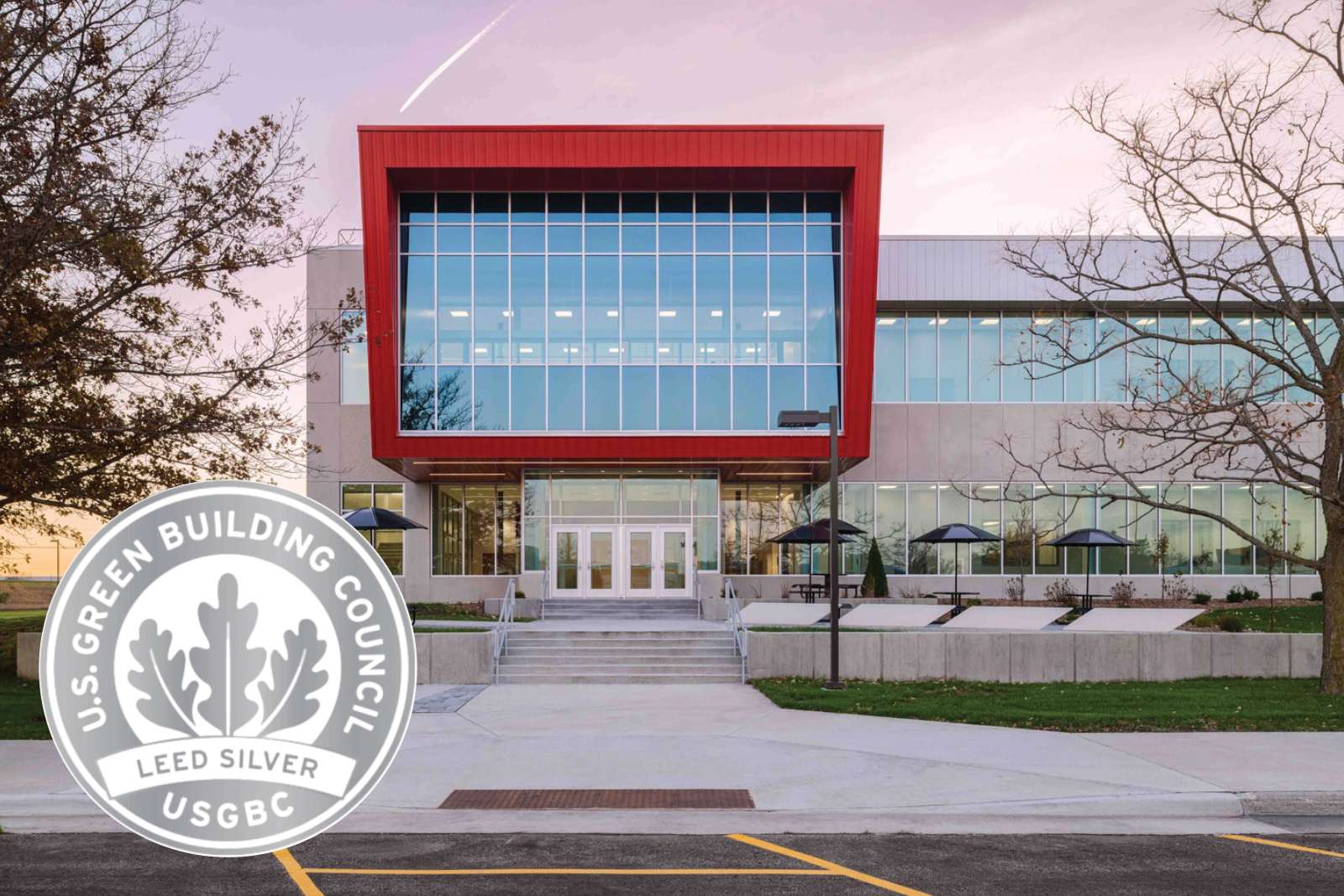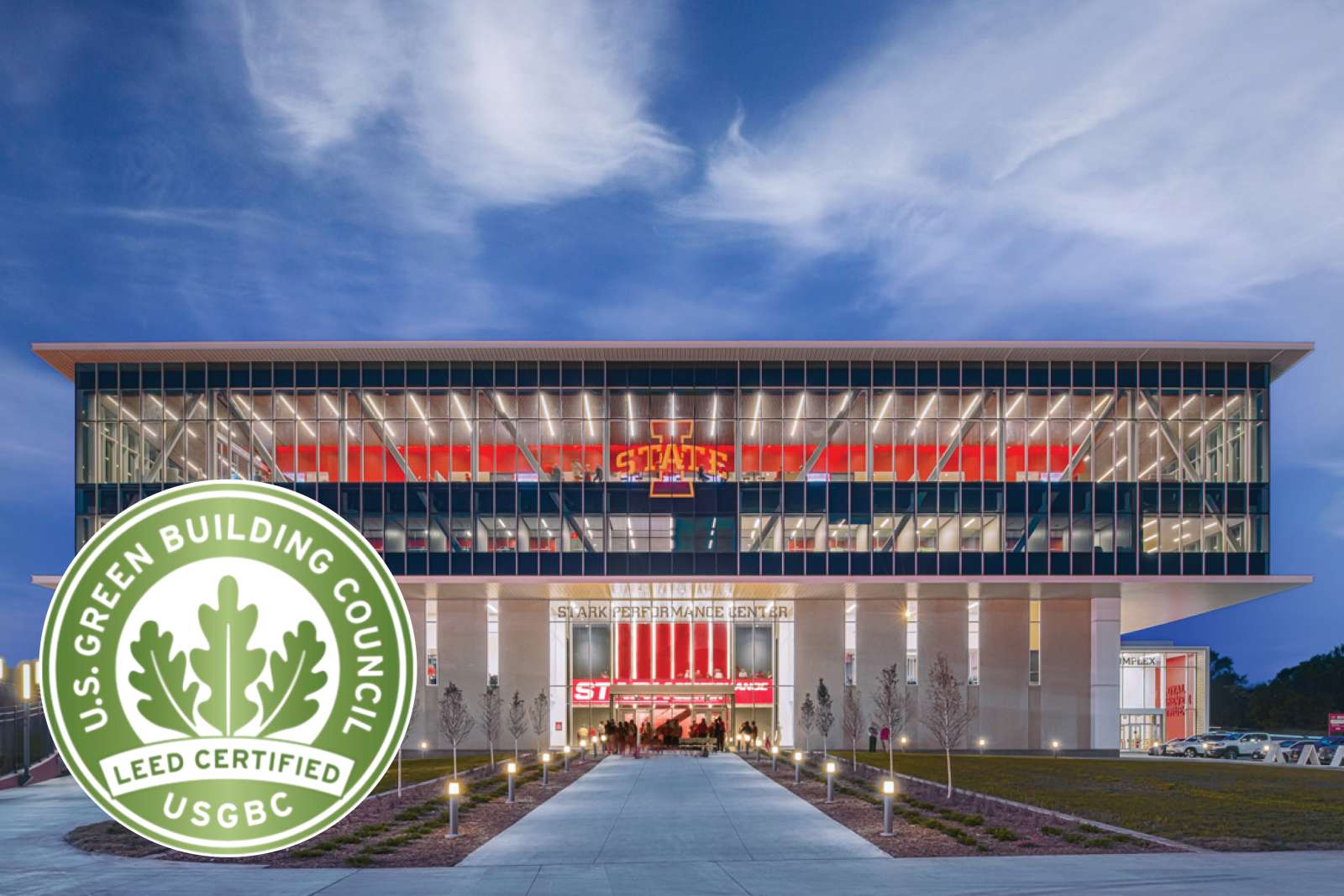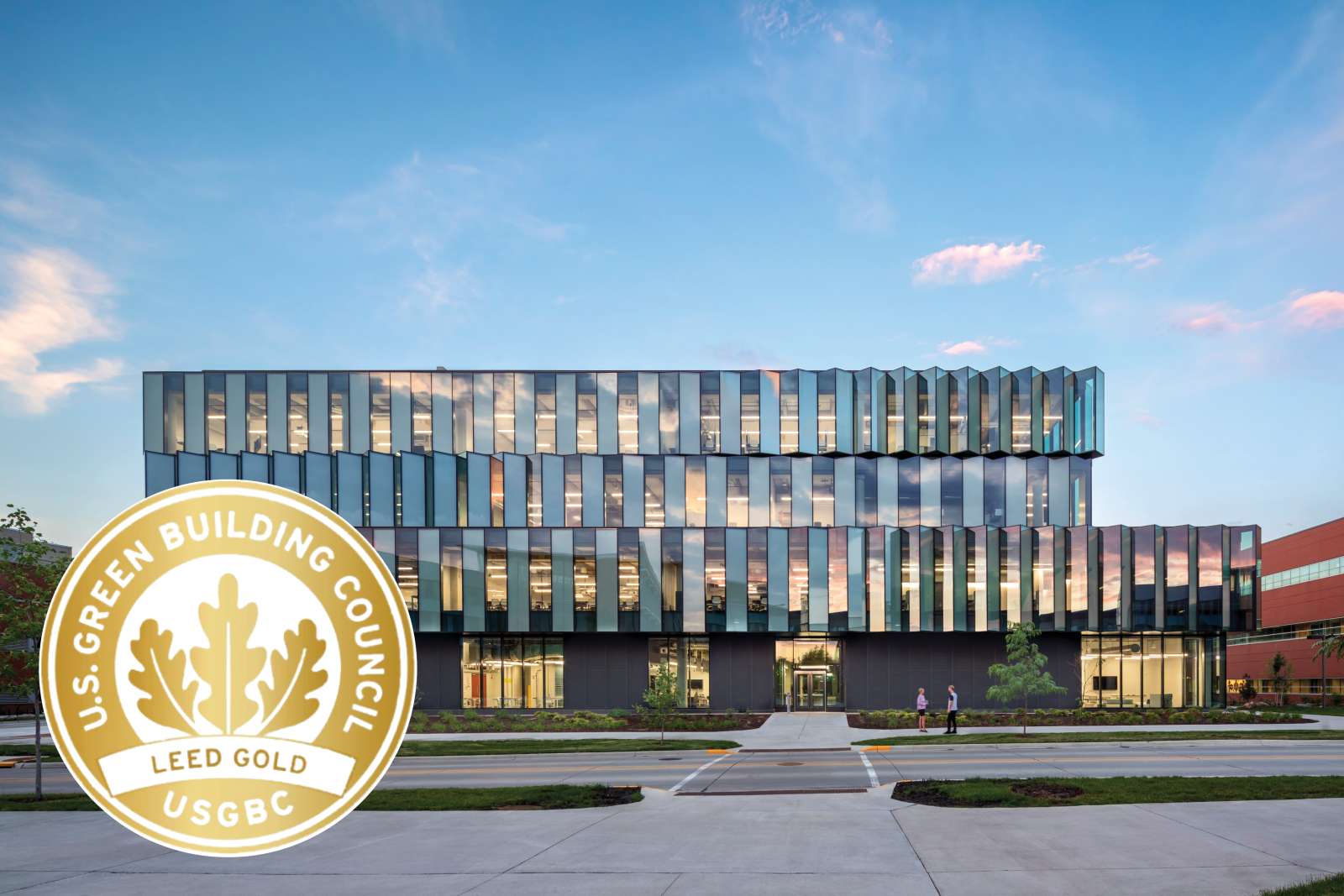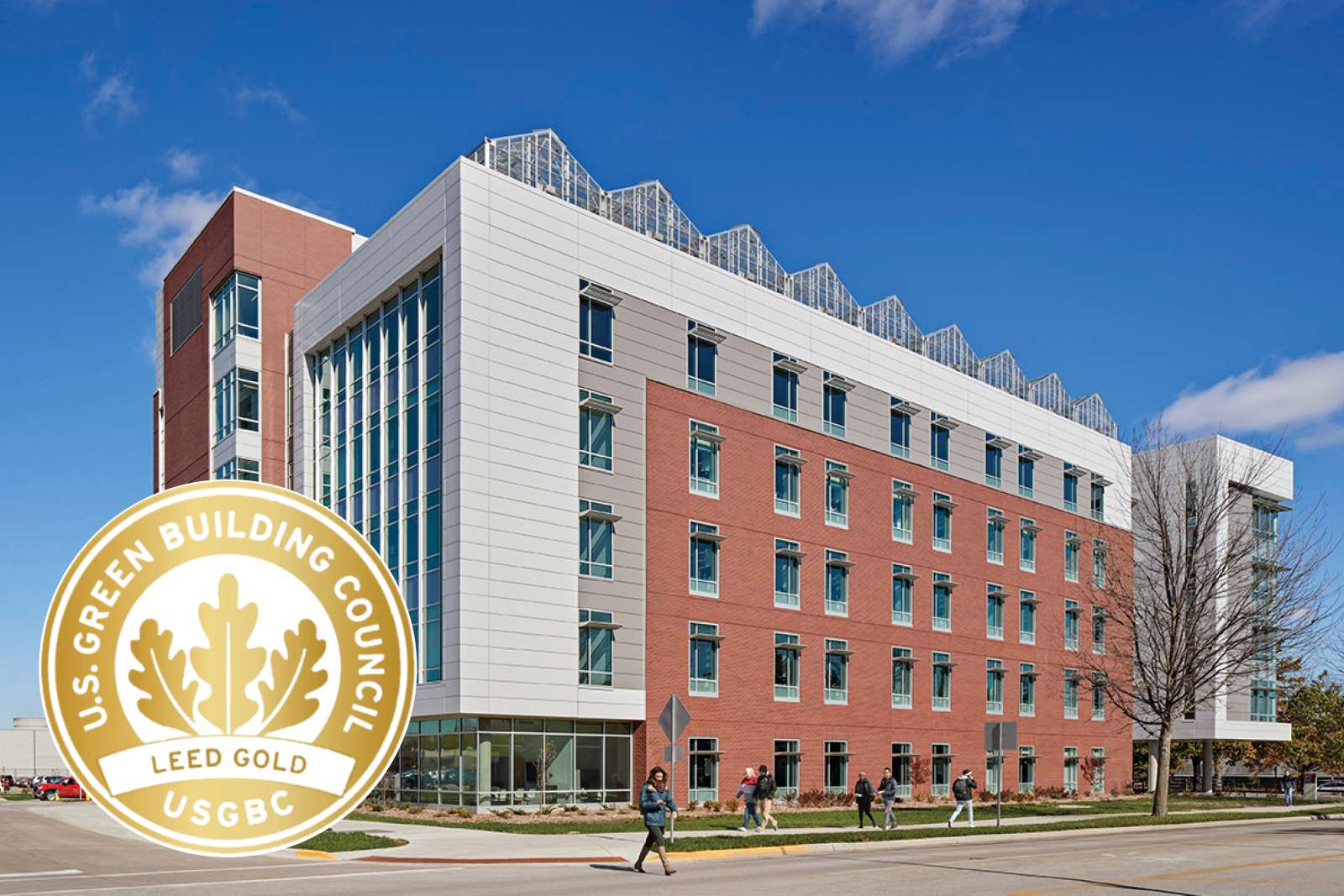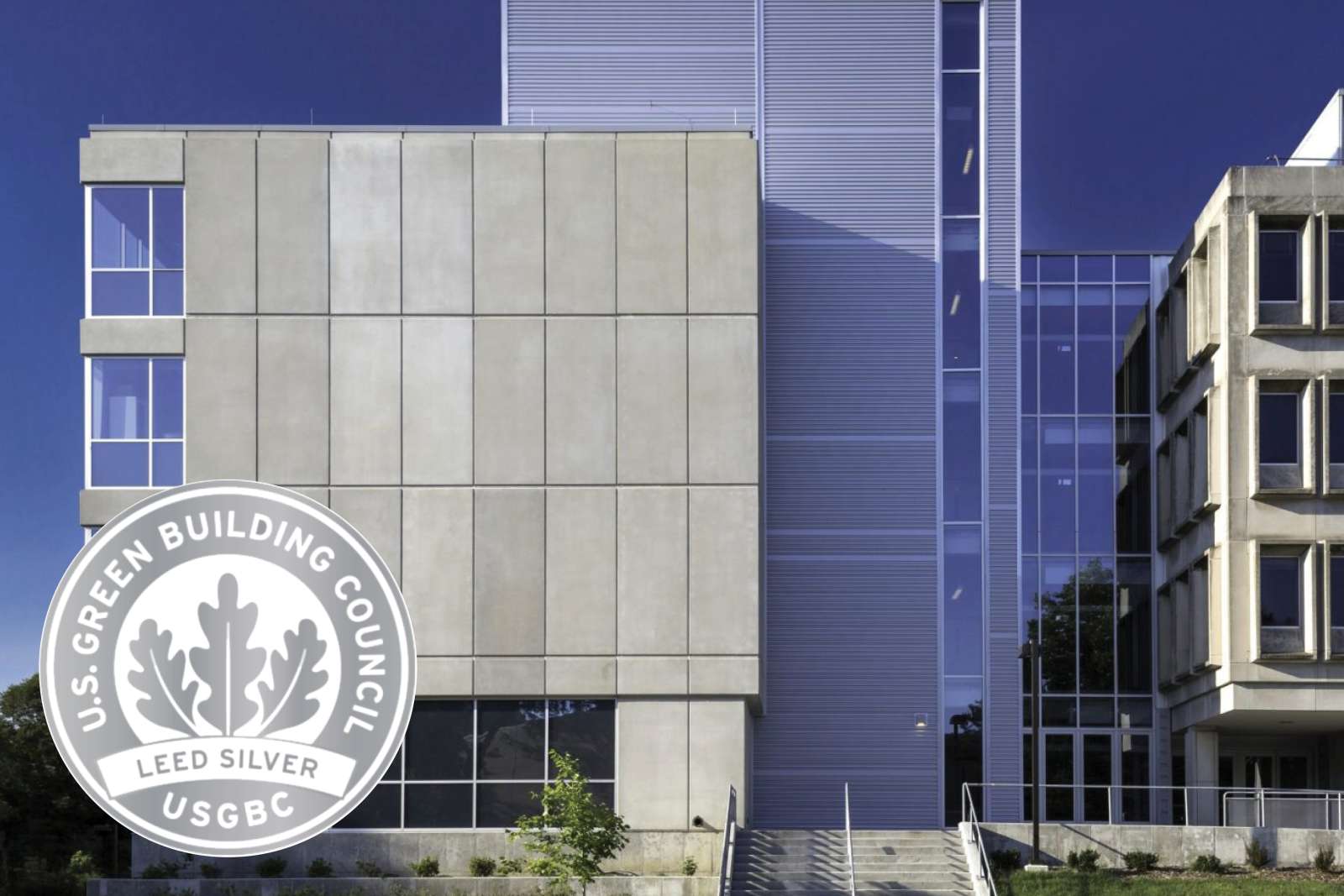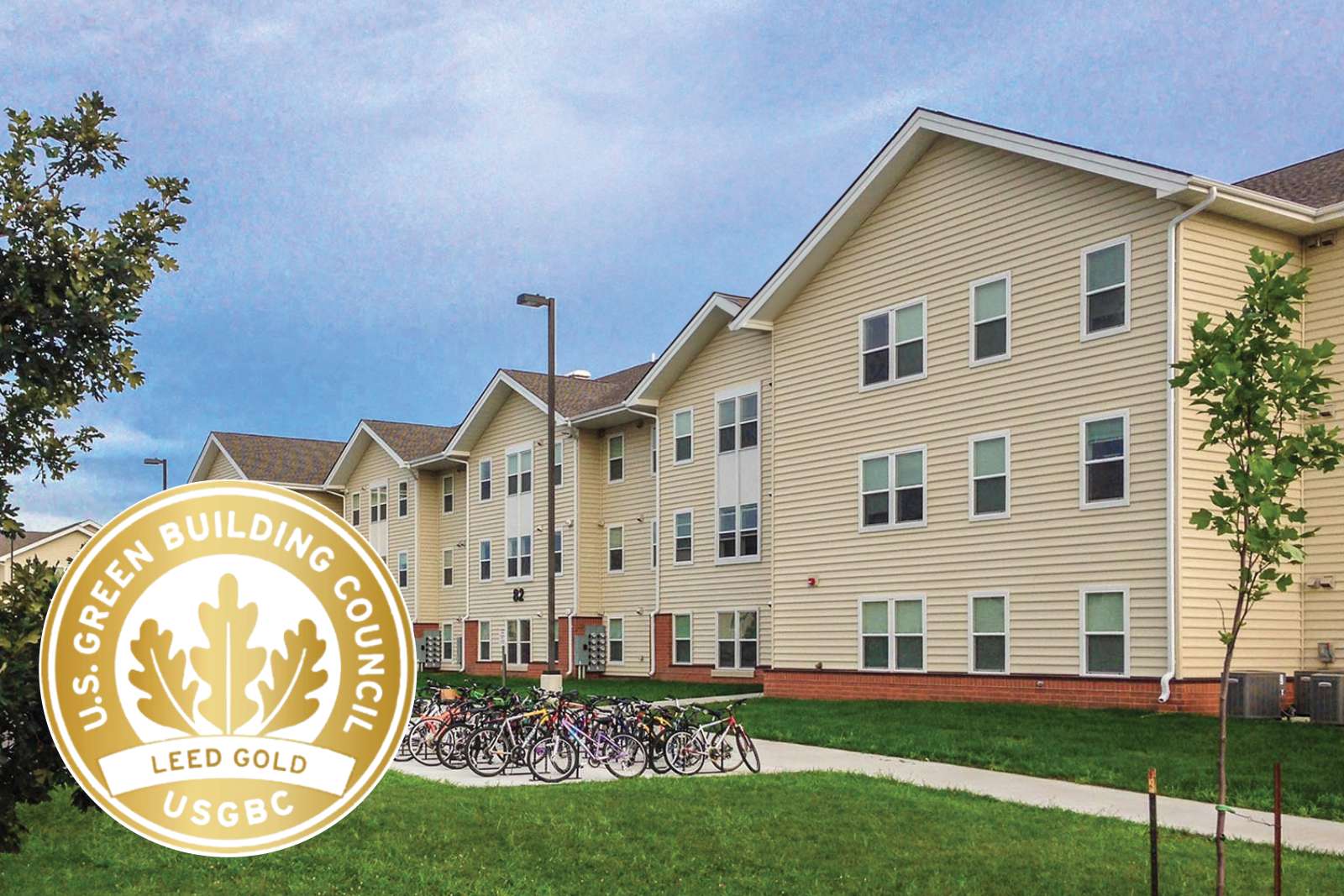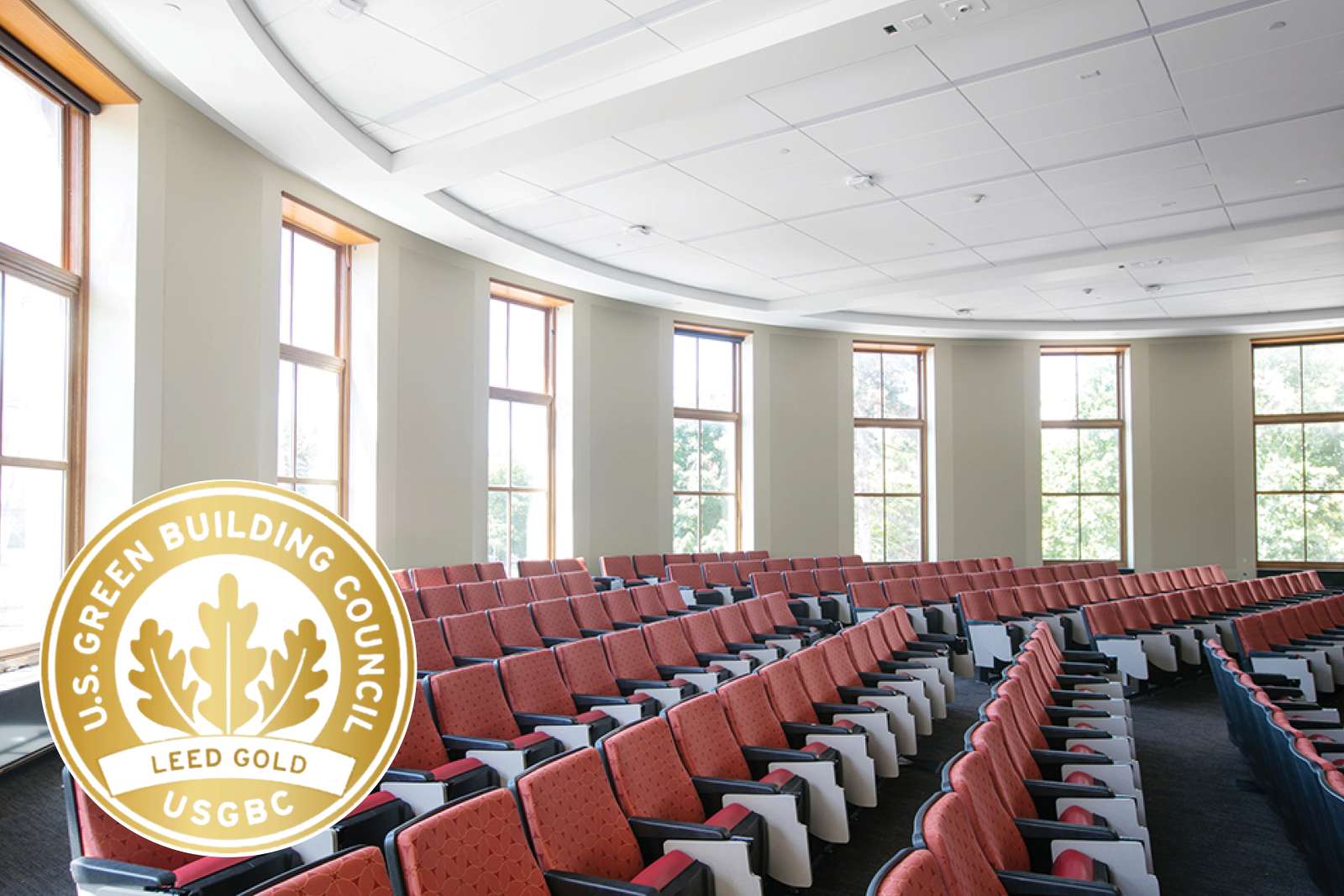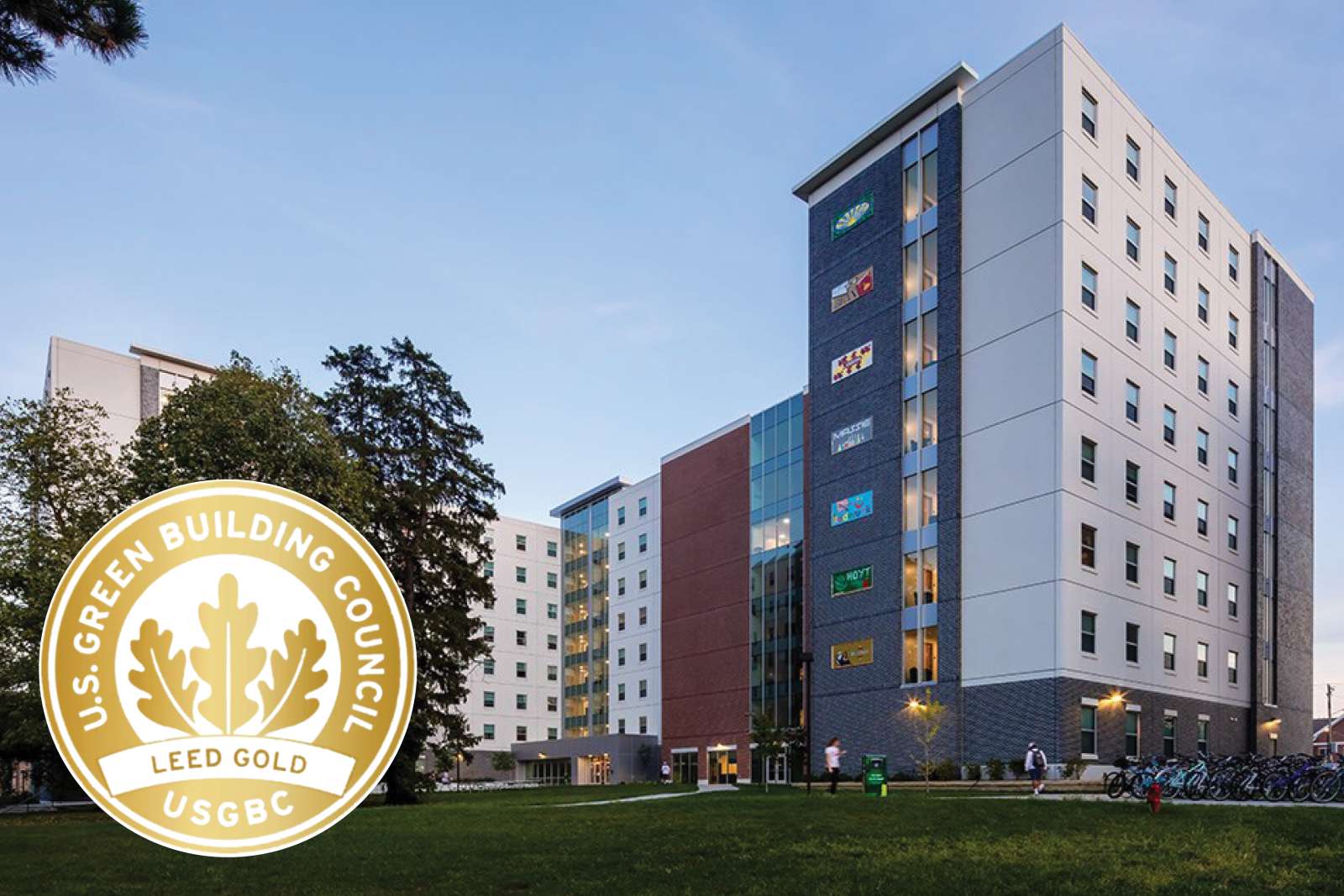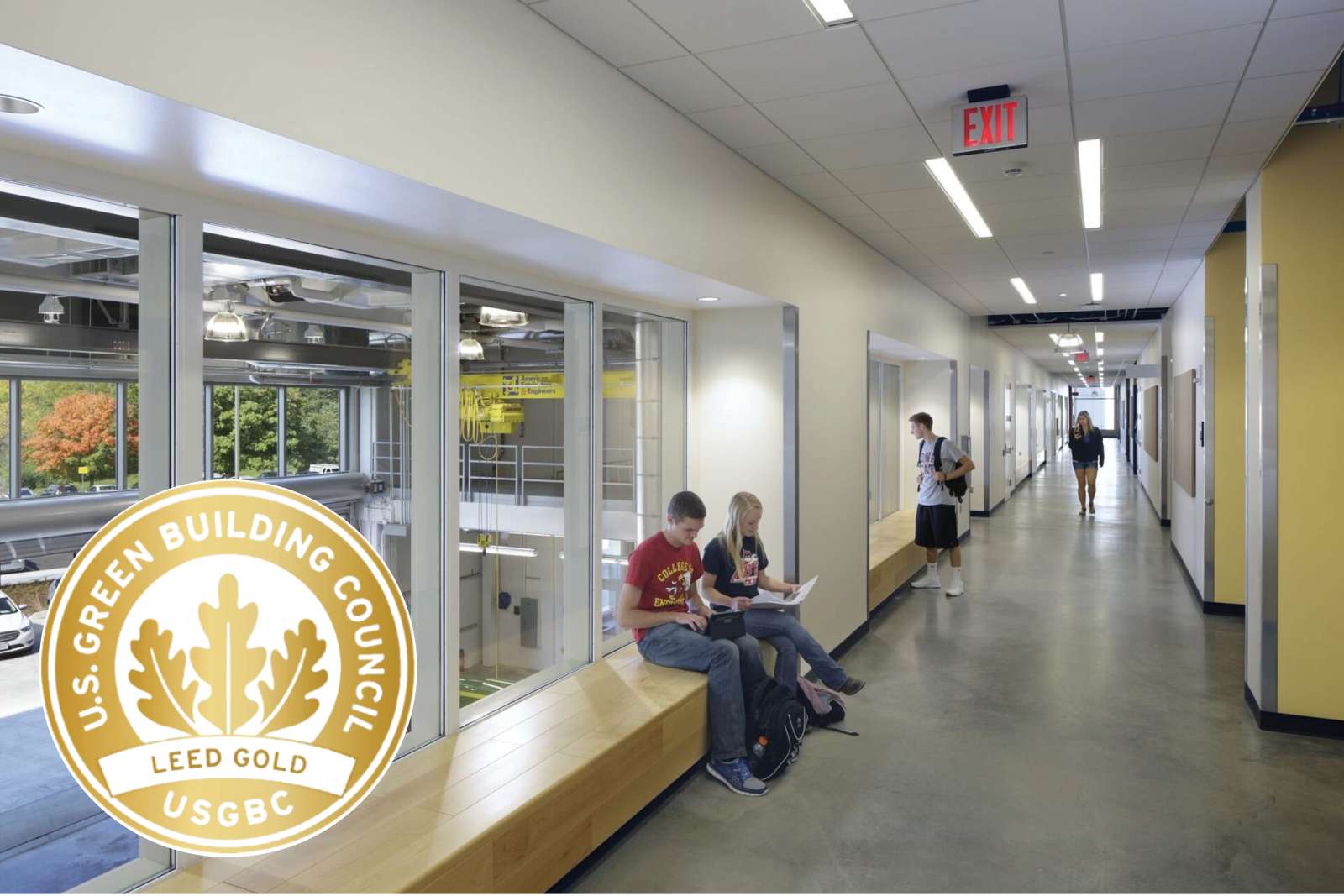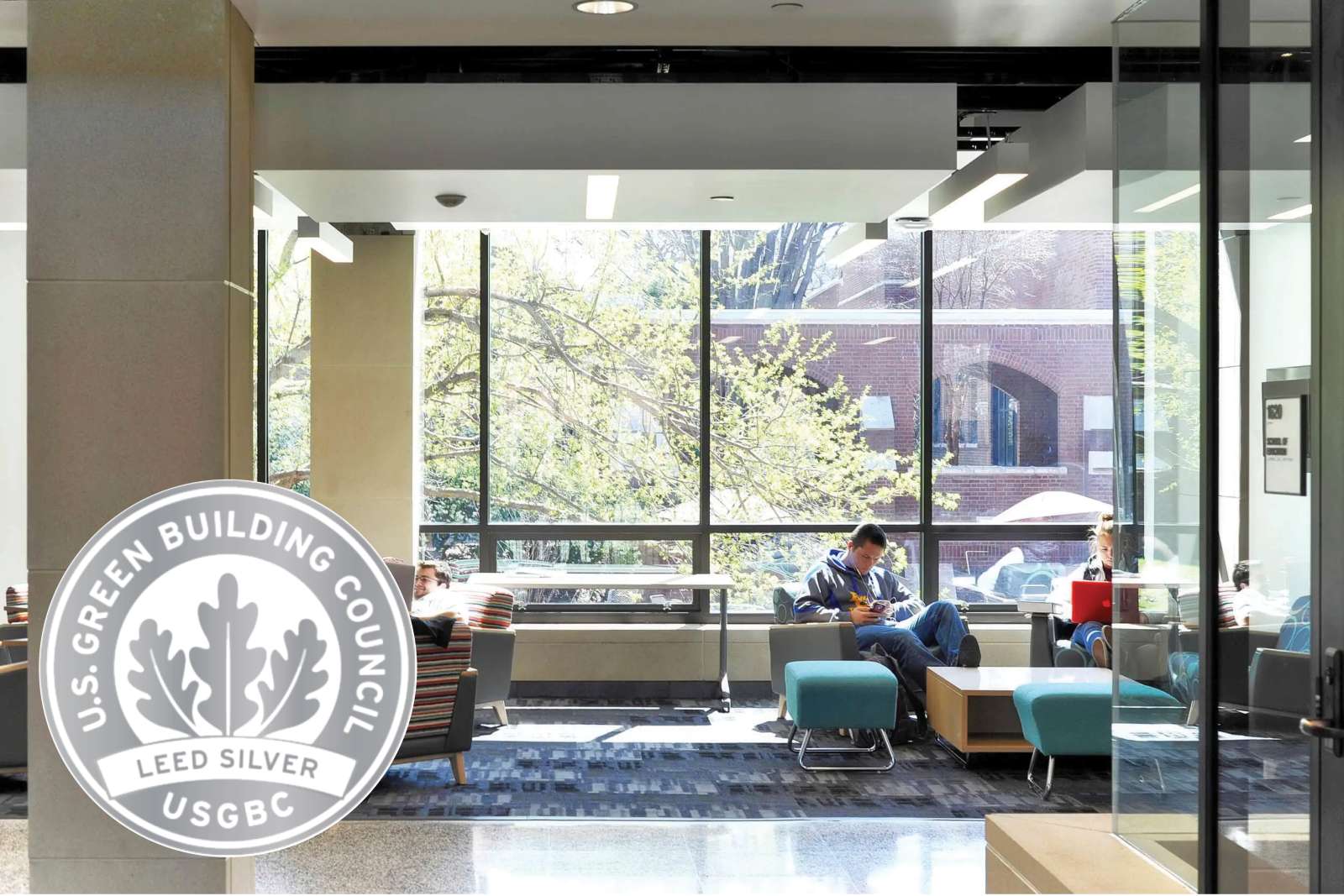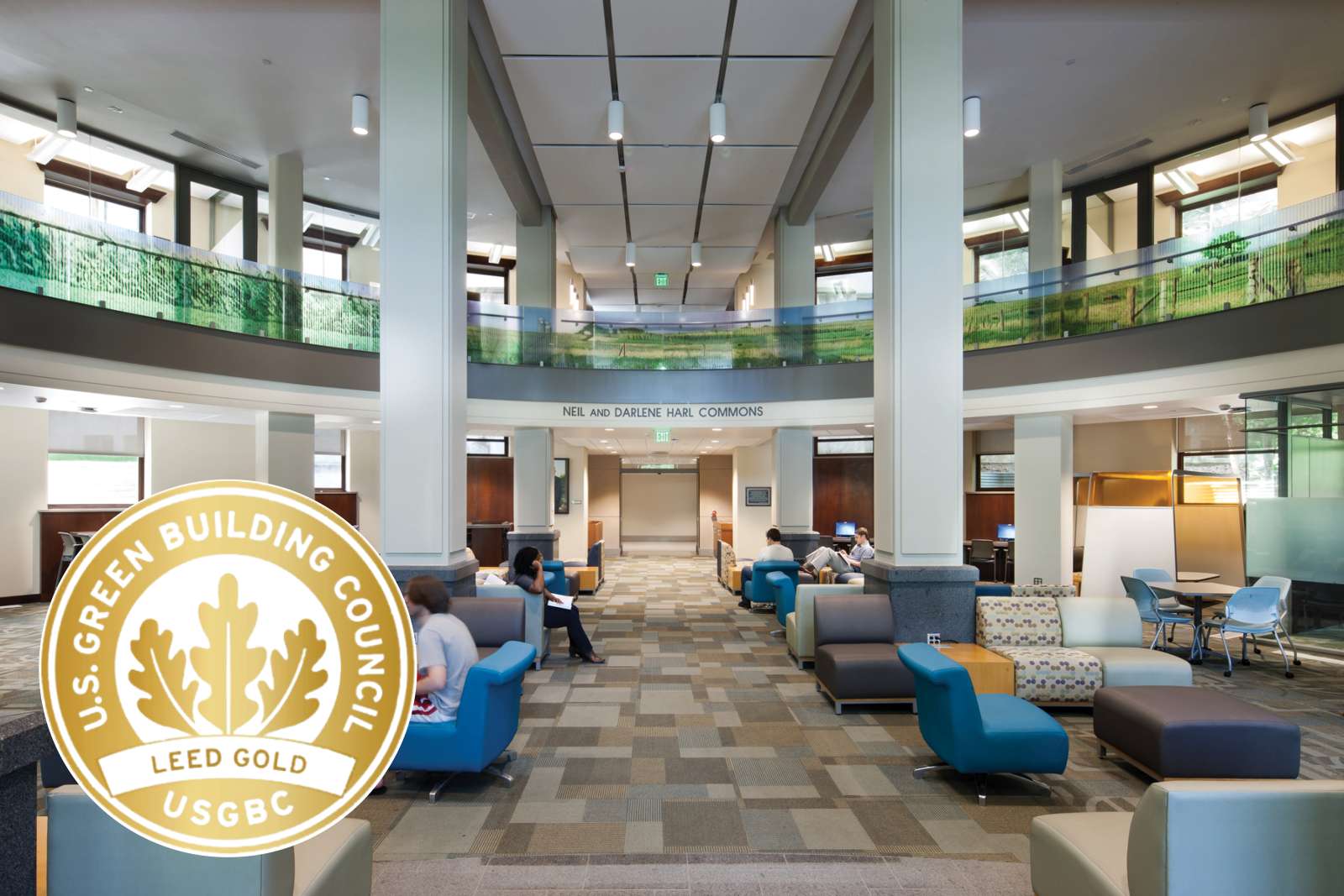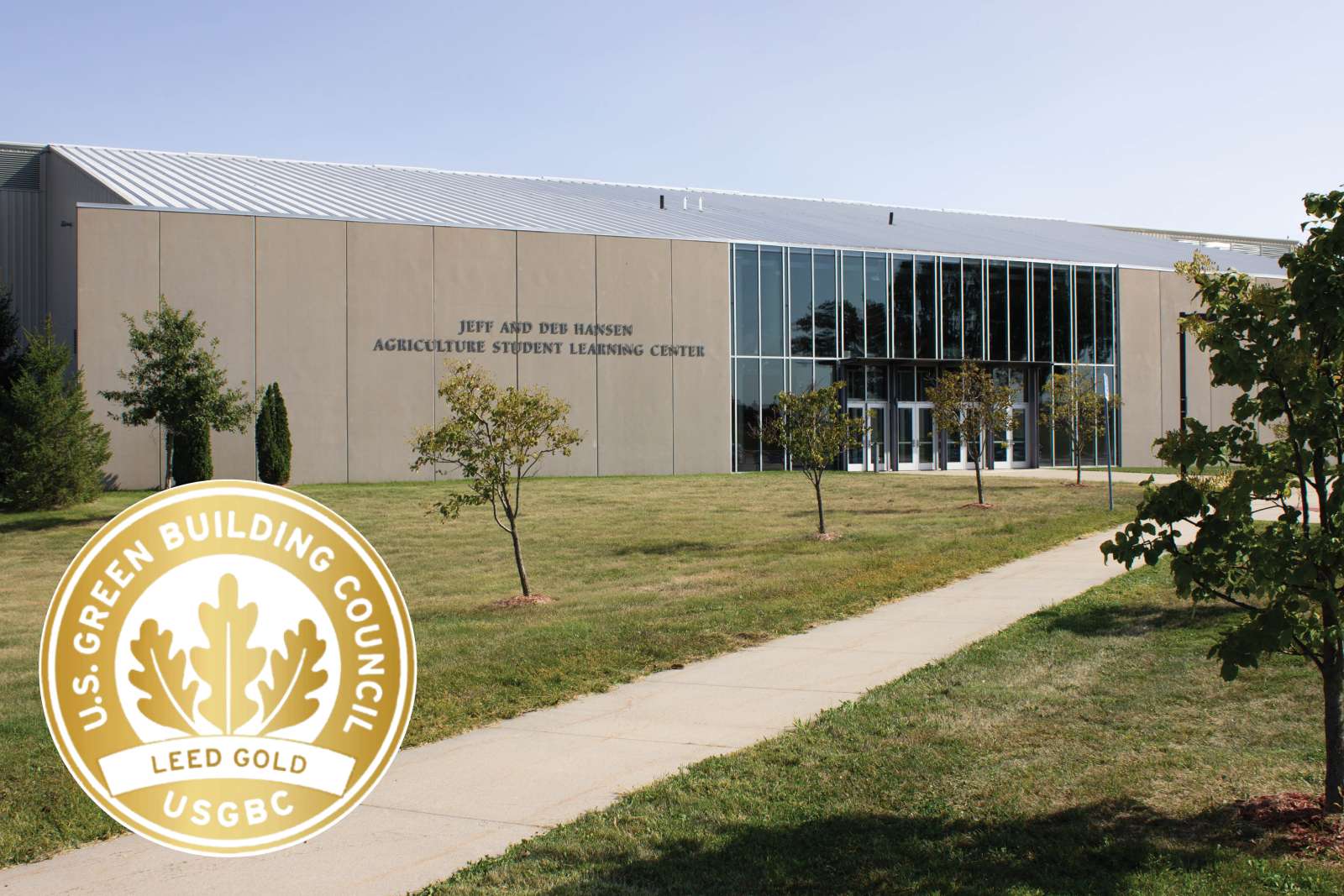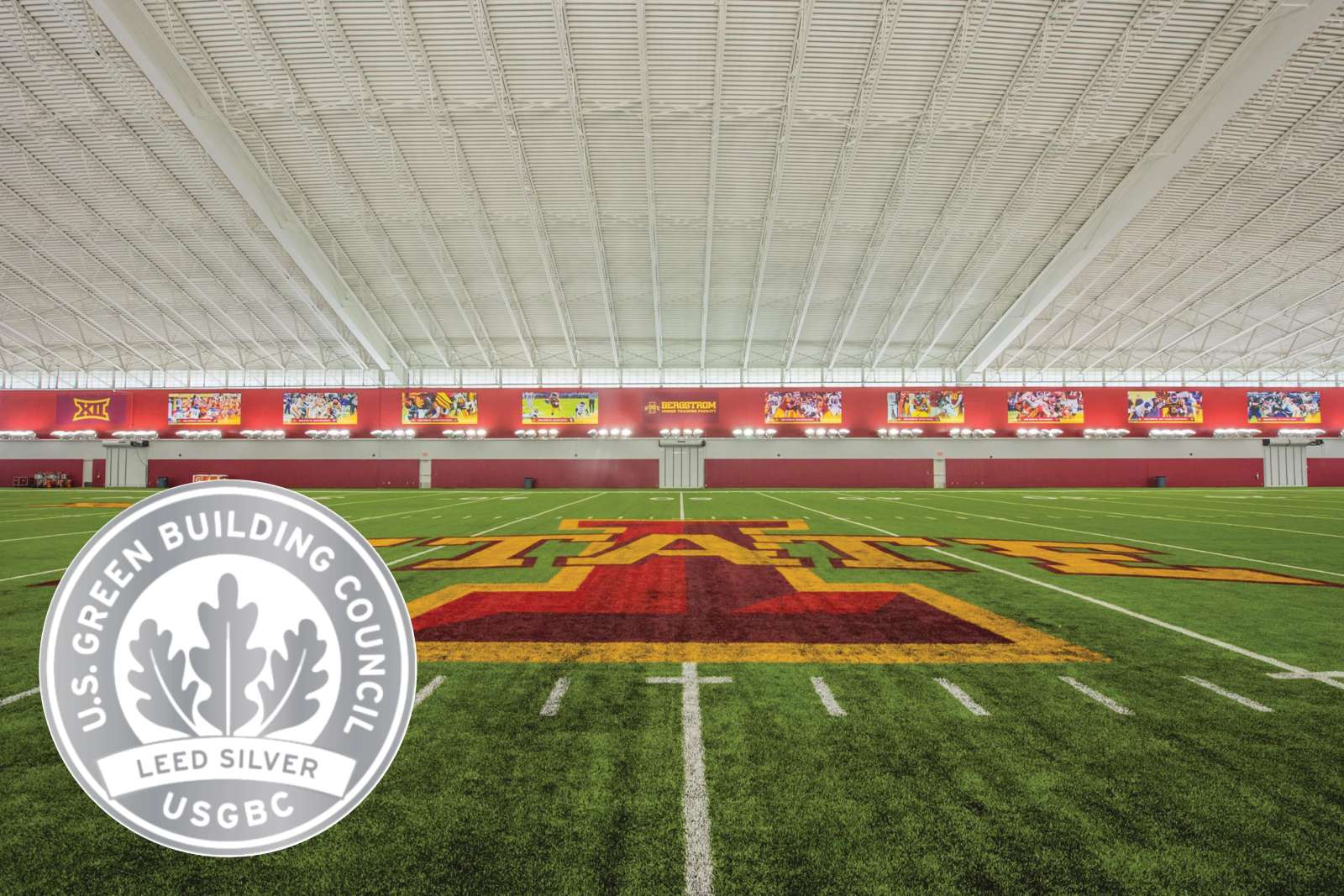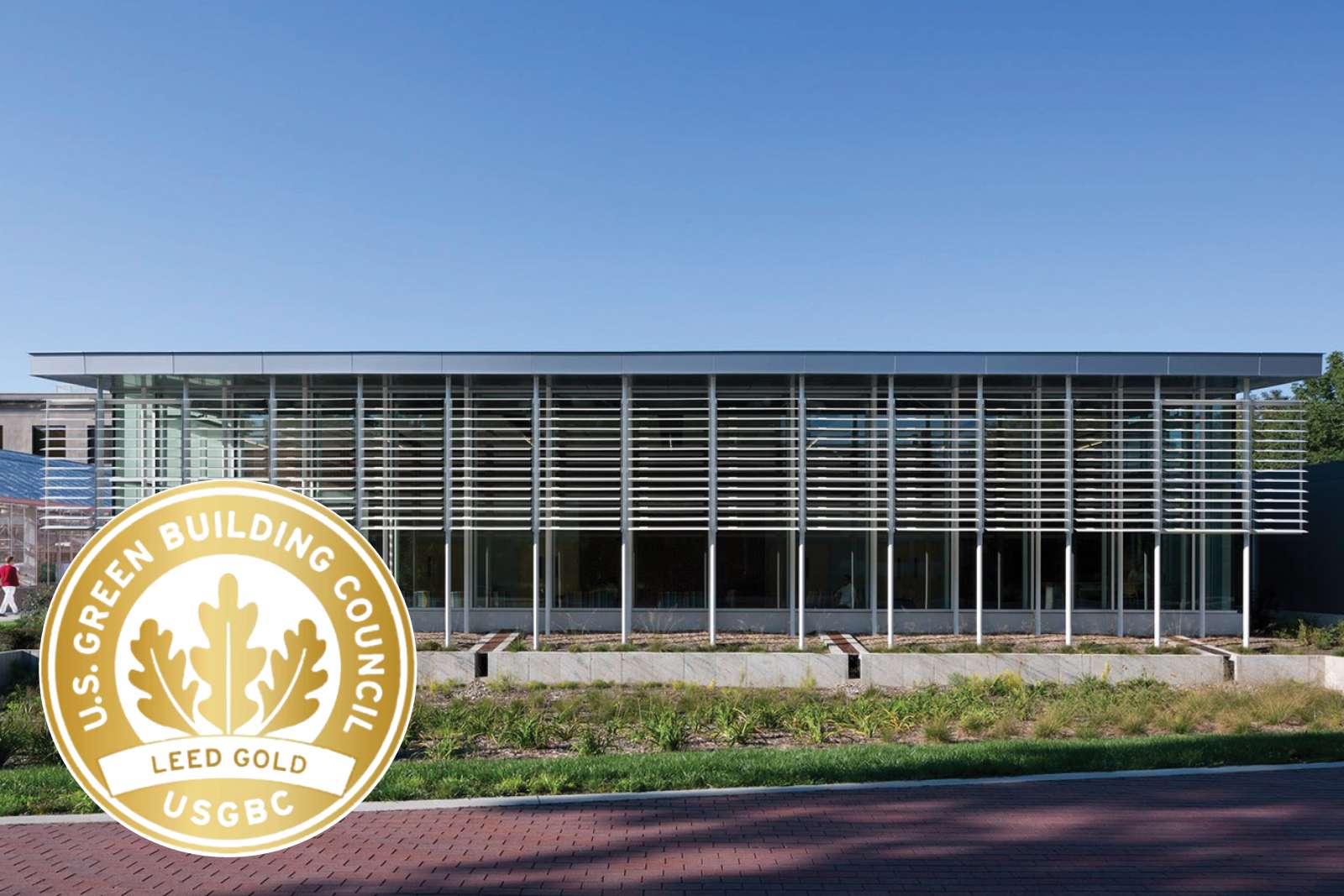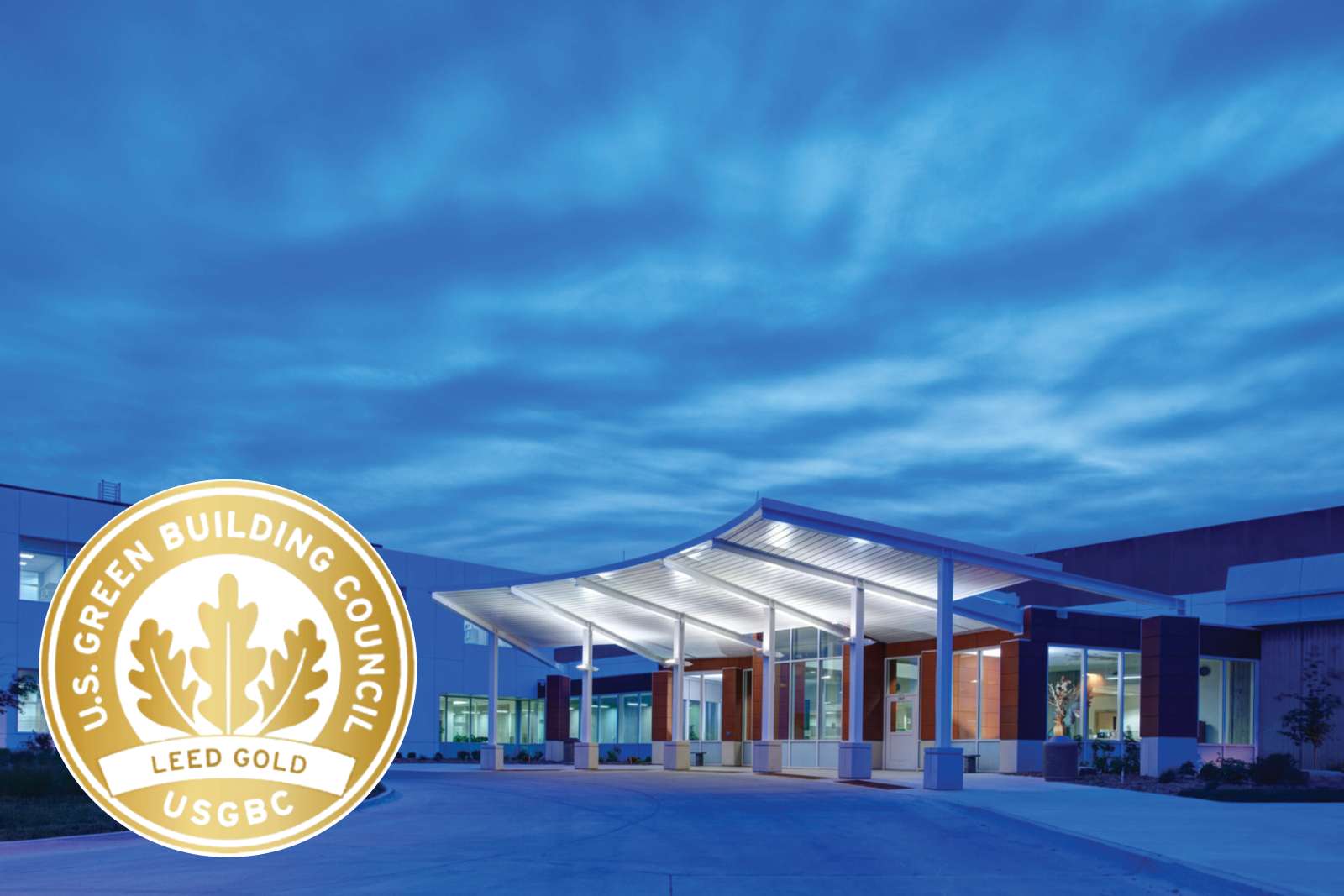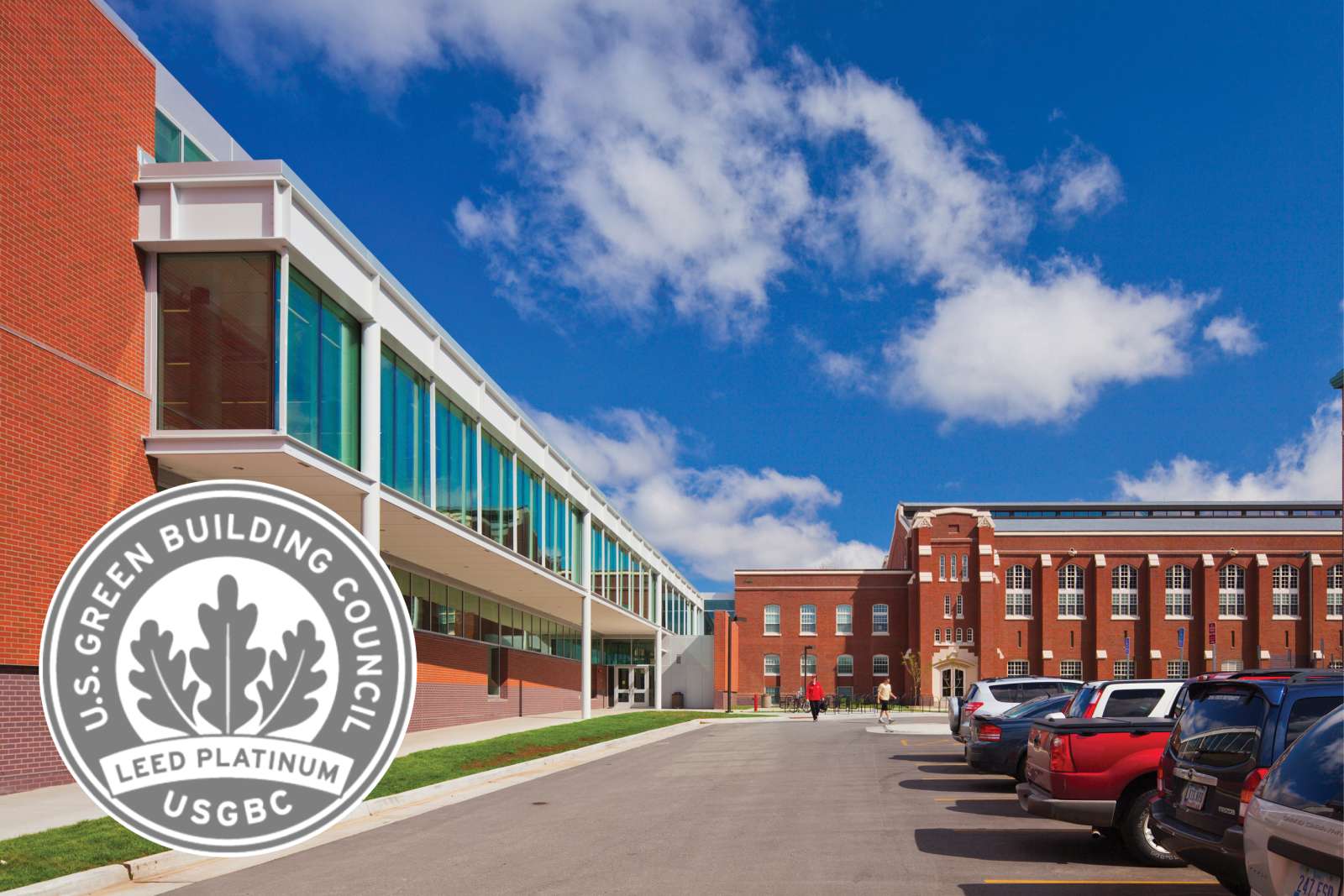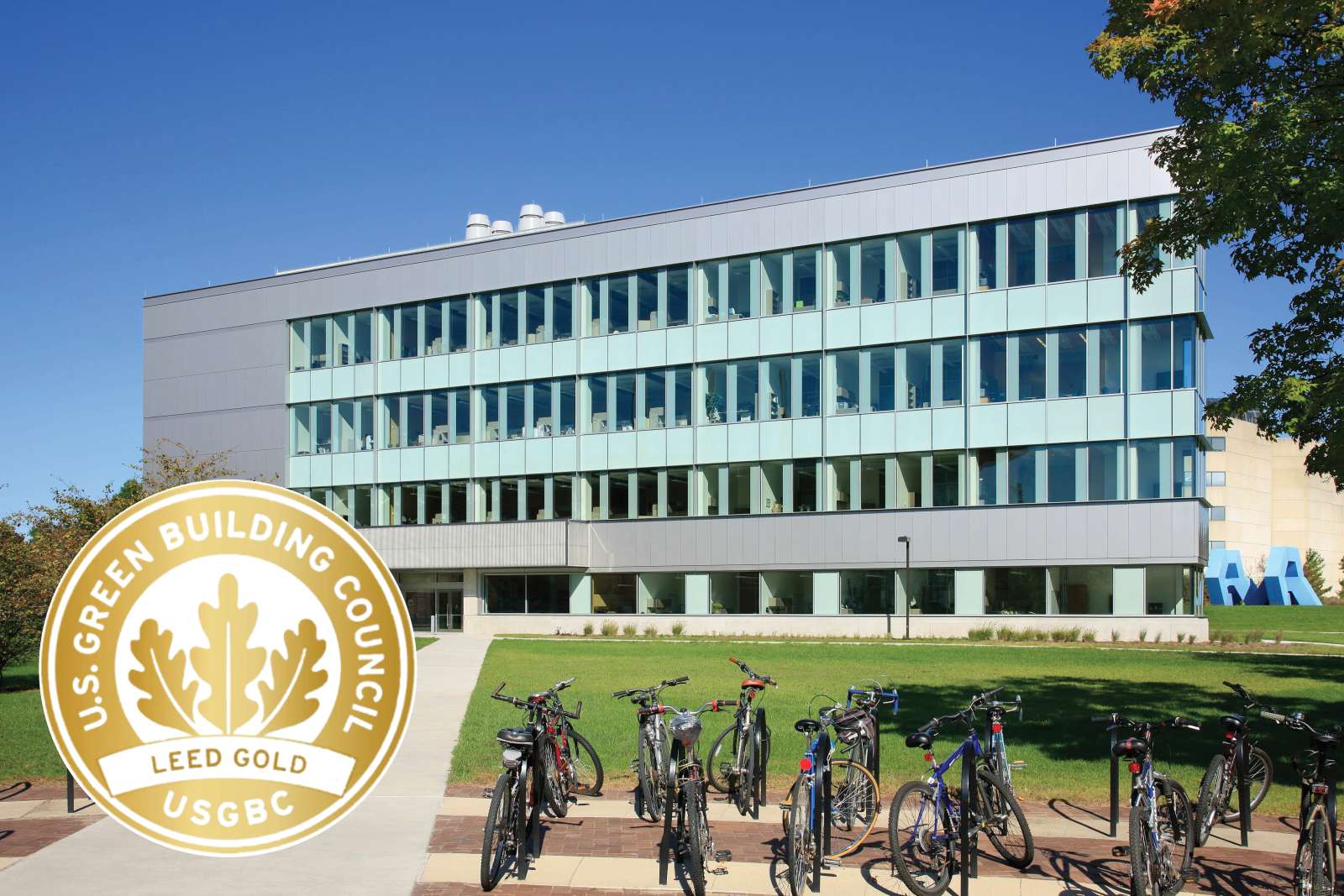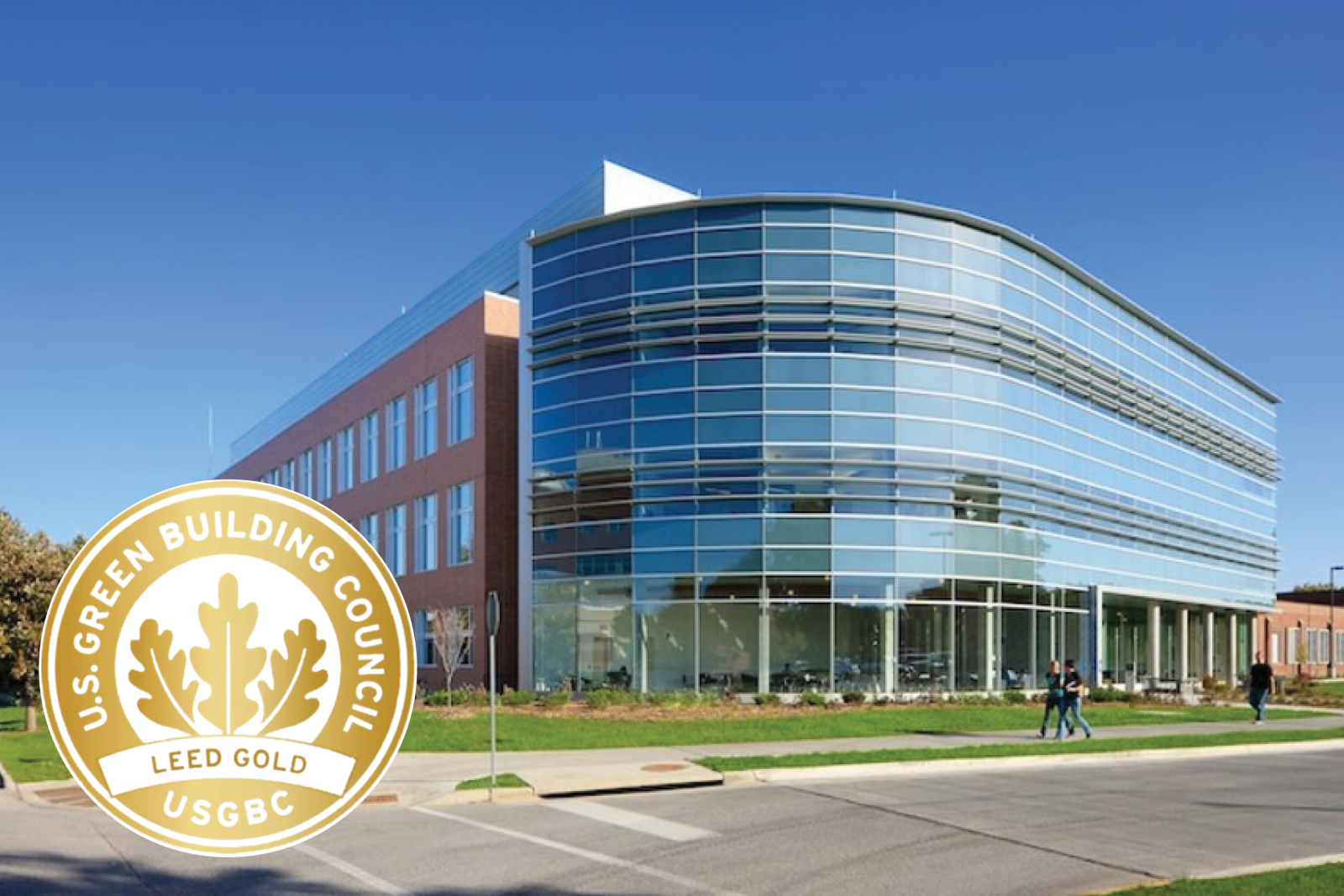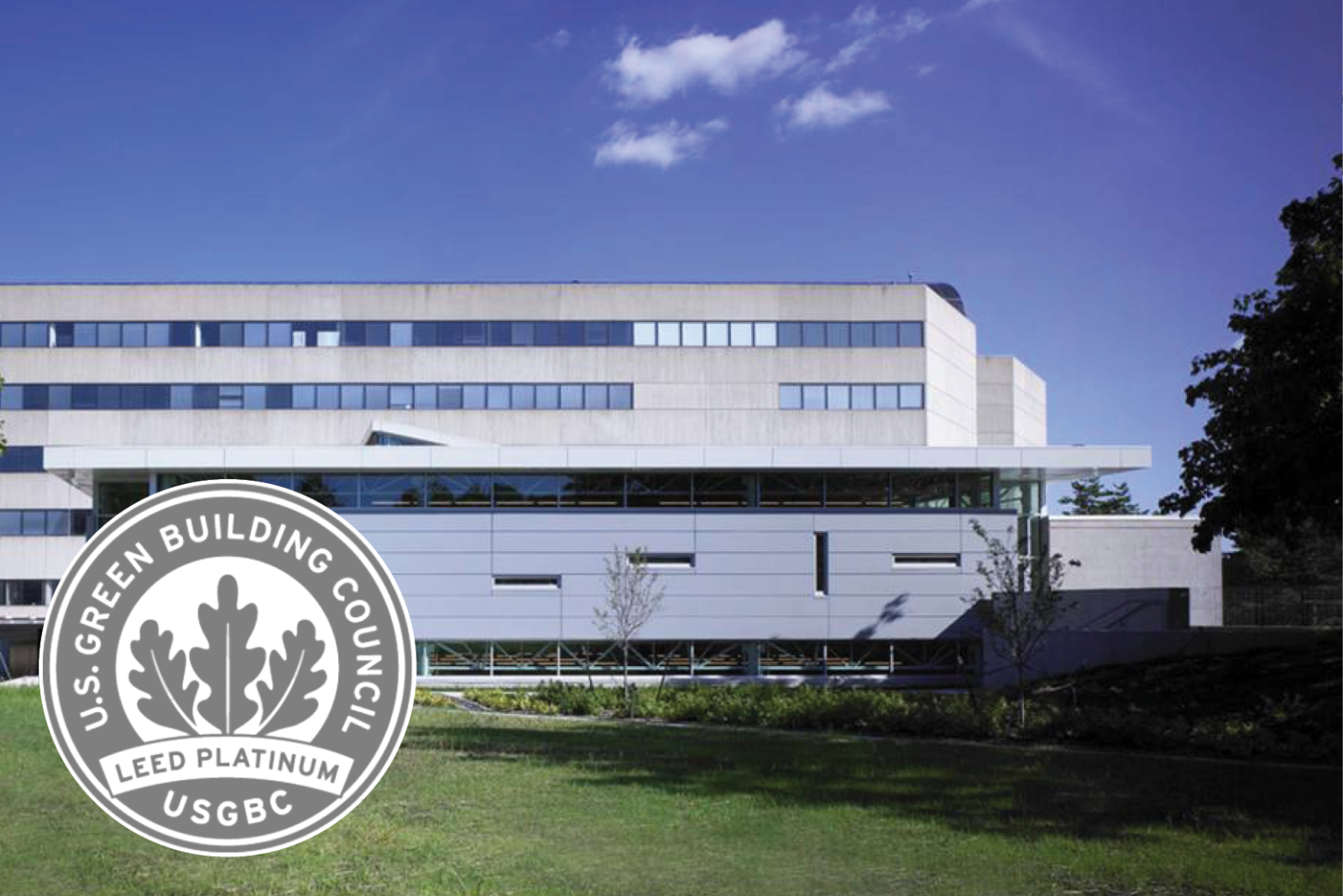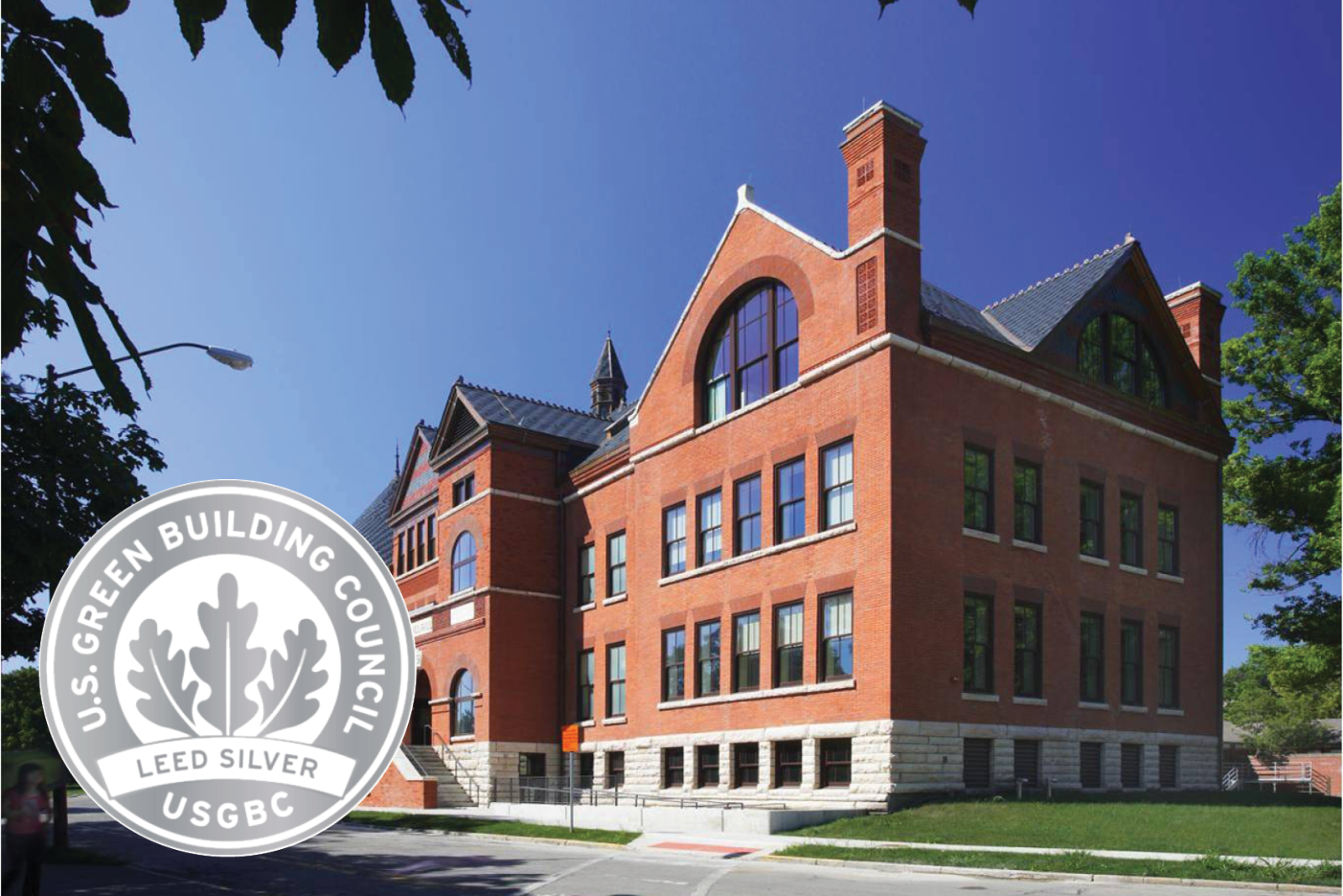Geoffroy Hall
LEED Gold - v3 | Certified 8/14/2017
Geoffroy Hall achieved LEED Gold certification by implementing various sustainable strategies. The building's heating, cooling, and electrical designs reduce energy consumption by 31% below state code requirements, while low-flow fixtures contribute to a 45% reduction in potable water use. Green aspects include a white roof for heat reflection, low-toxin materials, and landscaping that avoids the need for a permanent irrigation system. Notably, 77% of construction waste was recycled, and residents benefit from convenient access to four CyRide routes. The project maximizes outdoor space with its L-shaped design, prioritizes indoor air quality with a larger air handling system, refrains from adding parking spaces, and incorporates occupancy sensors and dimming controls for efficient lighting. The use of pre-cast exterior panels minimizes construction waste, and stormwater runoff is reduced and filtered through landscaping, land swales, and underground retention areas. The custodial plan aligns with LEED's green cleaning policy, contributing to the overall success of the green-focused Geoffroy Hall project.
